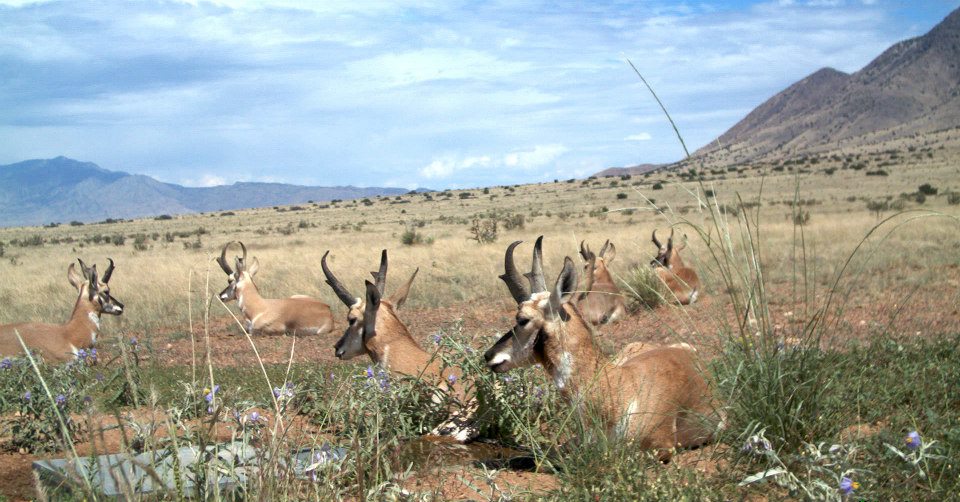Sowing the seeds of support for science
Growing fiscal constraints as well as a growing distrust of science among some factions of the conservative movement have made it harder to reach the bipartisan consensus on science issues that existed in days of yore. The House Science, Space and Technology Committee, once a sanctuary from political sparring, has now fallen into the soap opera-style partisan rivalries more commonplace in committees with jurisdiction over hot button issues related to social or fiscal policy.
Earlier this month, the House was scheduled to take up H.R. 1891, the Science Laureates of the United States Act of 2013, which would allow the president to appoint a Science Laureate of the United States to encourage young people to pursue careers in science. Despite the Republican chairman of the House Science, Space and Technology Committee being an enthusiastic lead cosponsor, the bill was pulled by House leaders over concern from conservative groups that President Obama would appoint an individual who would promote a partisan agenda related to climate change.
Issues related to science were not always so polarizing. As late as the past decade, substantive legislation to authorize funding for scientific research was signed by a Republican president after passing a Republican Congress with overwhelming bipartisan support. In 2002, the National Science Foundation Authorization Act passed a Republican-controlled House with a lopsided 397-25 vote, was met with swift passage in the Democratic-controlled Senate by unanimous consent and was signed by Republican President George W. Bush. More recently, the initial America COMPETES Act passed the then-Democratic-controlled House with bipartisan support from leaders of both parties by a 367-57 vote margin in 2007 and was also signed by President Bush. In stark contrast, the America COMPETES Reauthorization bill, passed just three years later, passed the Senate by unanimous consent, but was opposed by a majority of House Republicans (16 supported, 130 opposed).
When Republicans garnered control of the House after the Nov. 2010 mid-terms, buttressed by (and now arguably reliant upon) political support of the tea party movement, there have been marked increases in legislative attempts to curtail scientific processes. There have been increasing legislative attempts to unilaterally delist various species from protection under the Endangered Species Act without traditional scientific input, additional requirements placed upon the National Science Foundation’s (NSF) merit review process and even a successful effort to at least temporarily limit NSF’s ability to fund political science research. It should be noted that while the latter was pushed by a Republican Senator, there was not sufficient vocal opposition from either of the major political parties to prevent the provision from being signed into law.
In the most recent edition of The Ecologist Goes to Washington podcast, outgoing Ecological Society of America President Scott Collins offers a potential solution for the growing distrust some policymakers have for science. Collins, noting that much of ecological research often involves relaying negative scenarios related to the impacts of climate change, asserts that scientists and the advocacy organizations that communicate on behalf of these researchers should do more to illuminate that many ways in which scientific research helps illuminate potential solutions. Collins argues that more needs to be done to highlight instances in which ecology has been used to solve problems.
 “We have a message that the world is falling apart and we sort of watch that and document that all the time and yet, in order to gain more support for what we do, I think we need to start talking more about the Society or the research, the teaching and activities that our members do in regards to solving problems.”
“We have a message that the world is falling apart and we sort of watch that and document that all the time and yet, in order to gain more support for what we do, I think we need to start talking more about the Society or the research, the teaching and activities that our members do in regards to solving problems.”
Ecological research continues to play a pivotal role in managing a multitude of costly threats to human society not limited to agriculture production, biofuel use, invasive species, land use, wildfire mitigation and zoonotic disease control. And while the issue of climate change and its influences remains a polarizing one, ecological science will be vital in the development of effective policies to help cope with sea level rise, drought, disease and other aspects of increasing temperatures.
Rather than focus concentration on the debate among policymakers regarding what level climate change is influenced by human activity or whether there is a consensus among the scientific community on the major influences of modern climate change, perhaps an effective trust-building route for ecologists to take is to inform policymakers what is happening in their own backyards and the ways in which science is being utilized to improve the lives of their constituents.
Building foundations of familiarity, which as Collins notes during the podcast, can be as simple as inviting a policymaker to a research site, can help build or restore trust between policymakers and the science community.
Photo Credit: FWS Sevilleta National Wildlife Refuge
